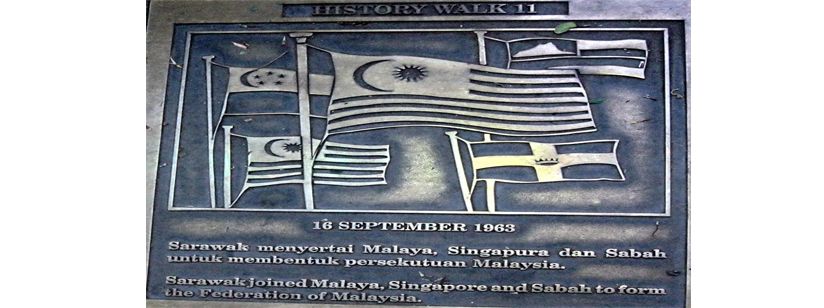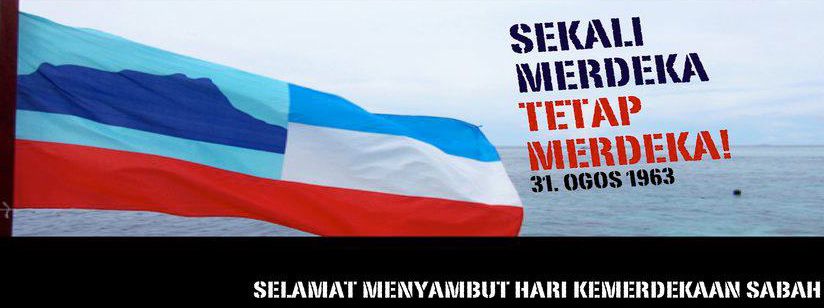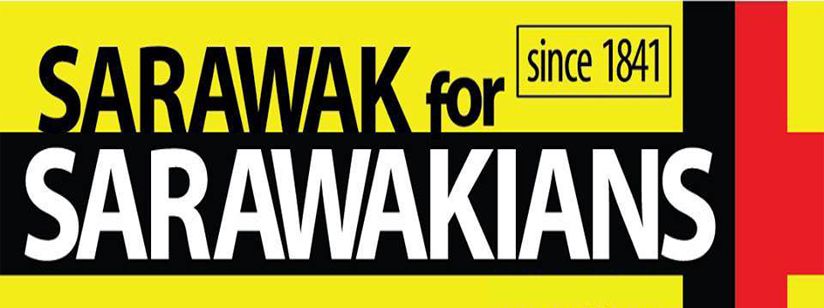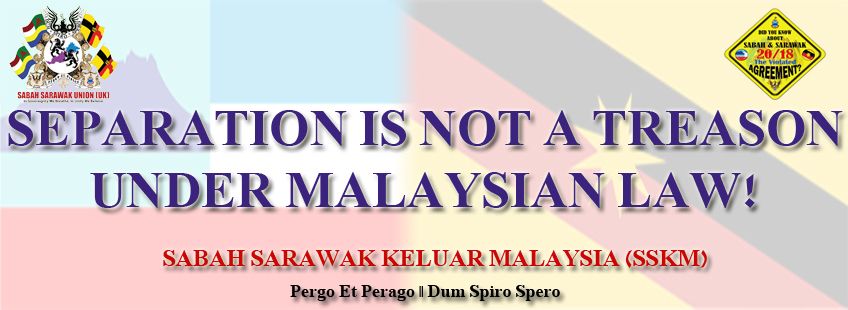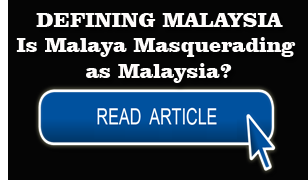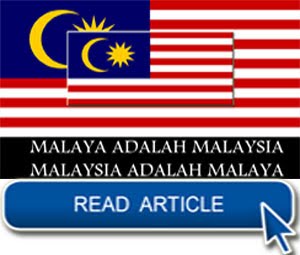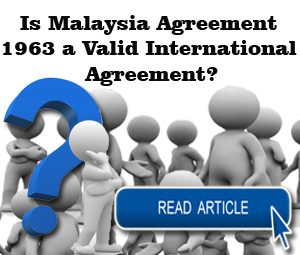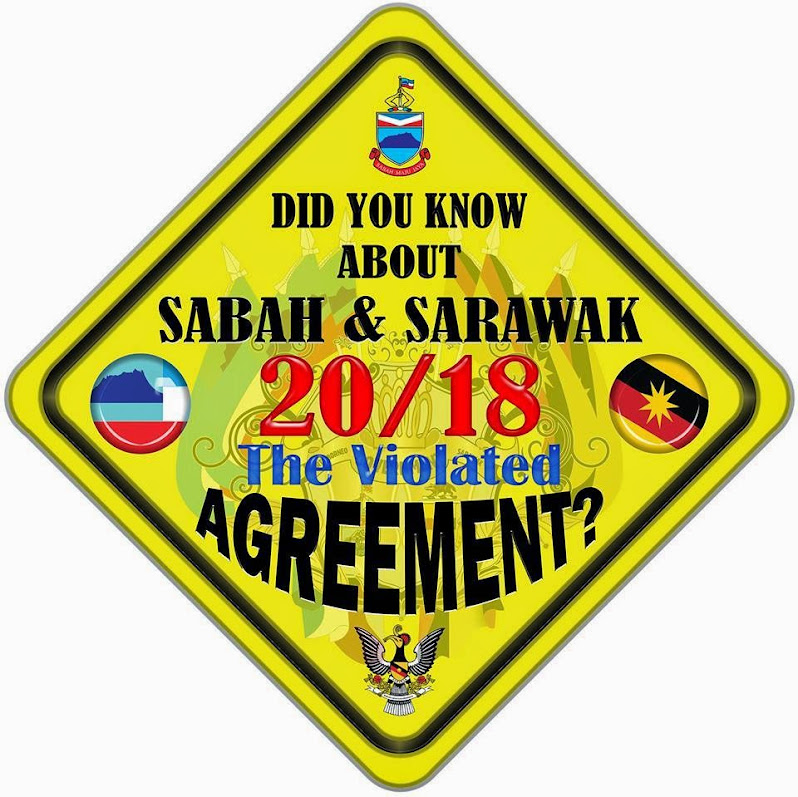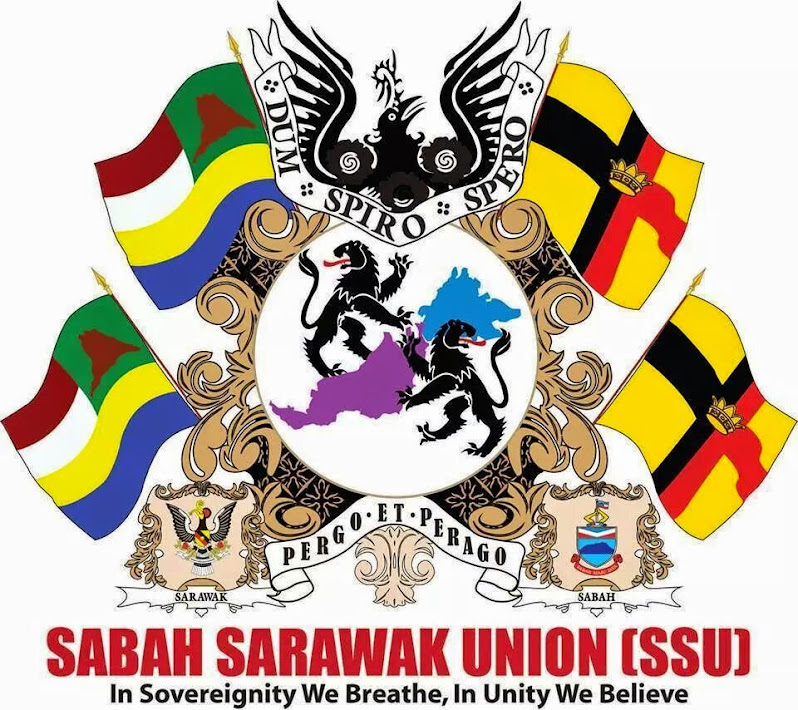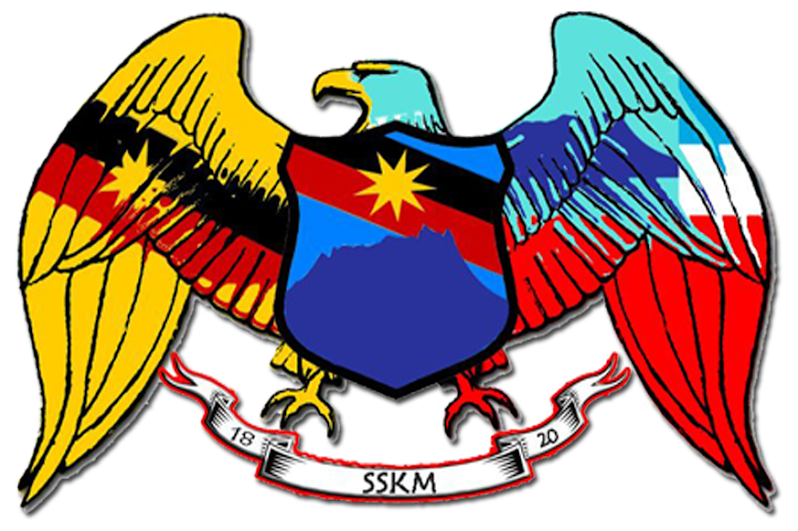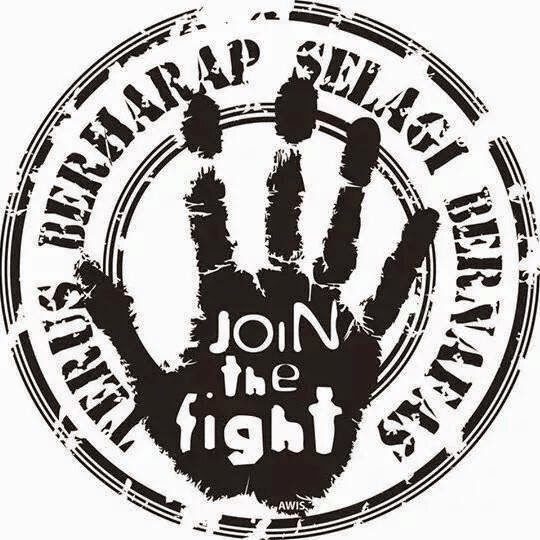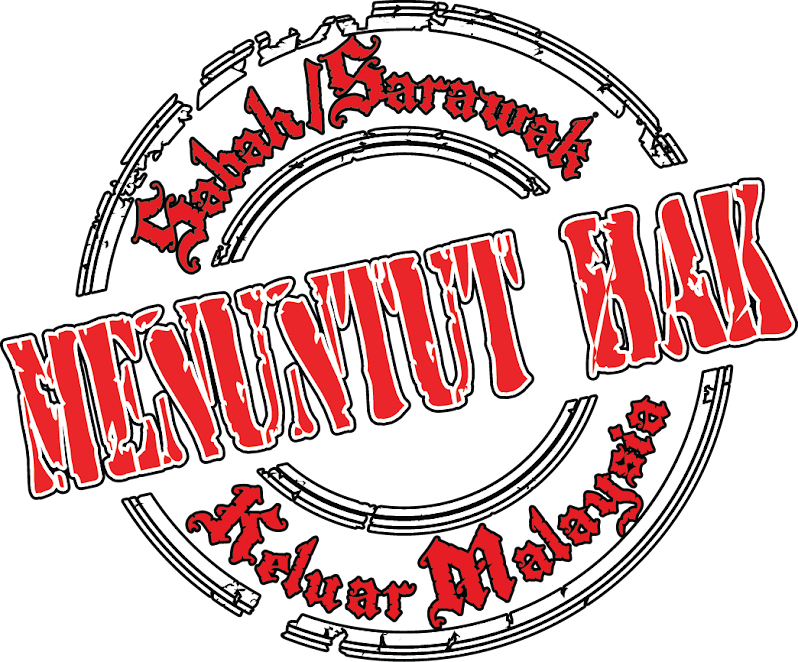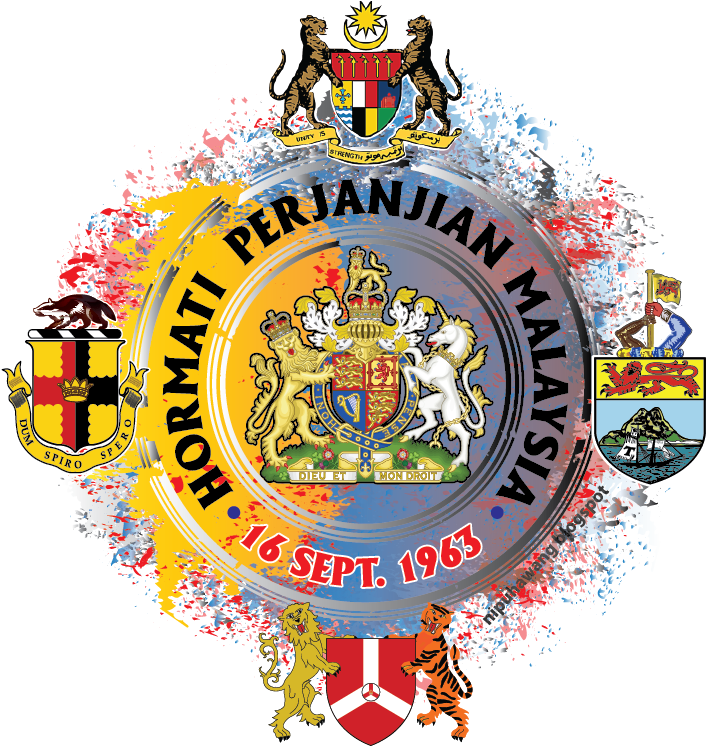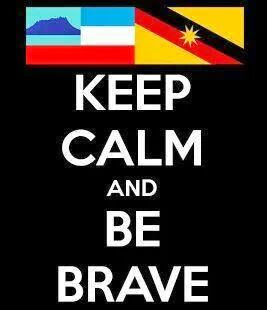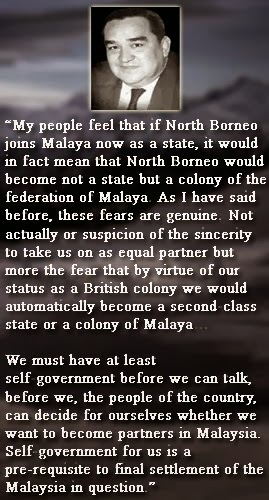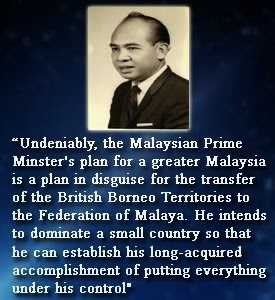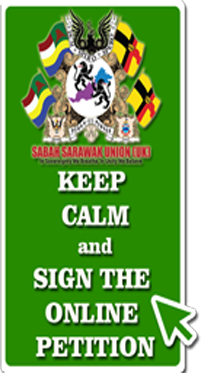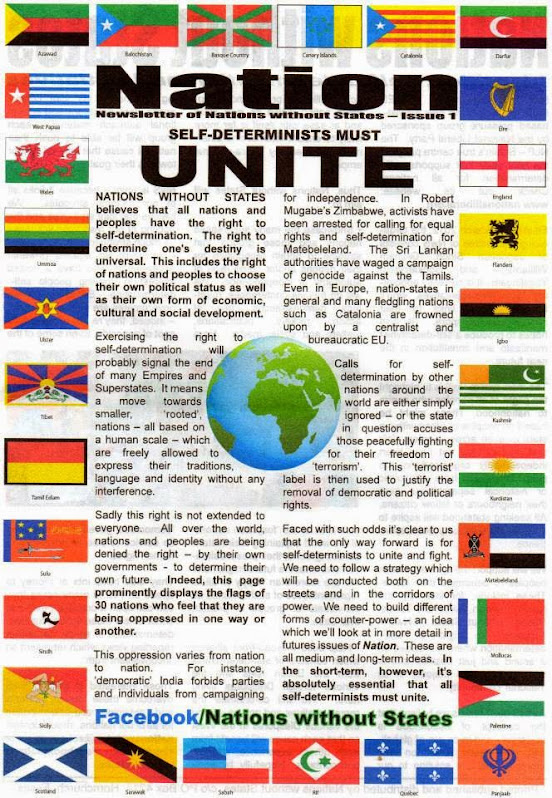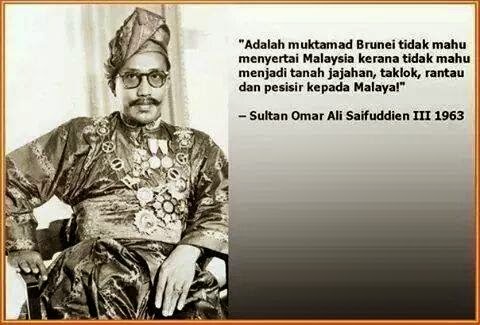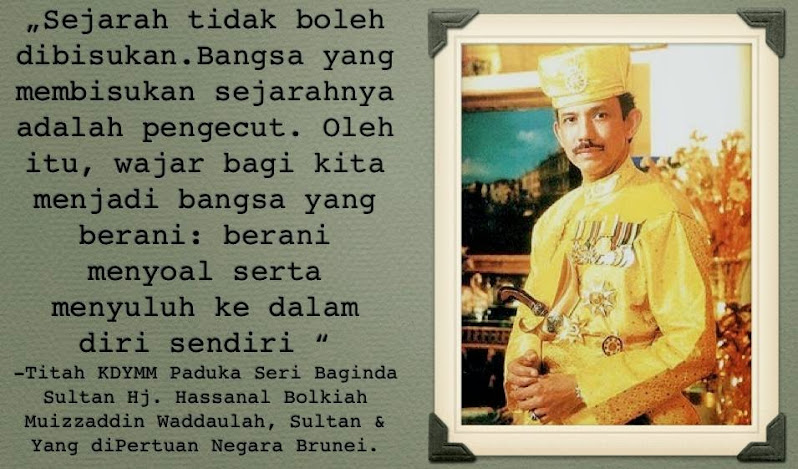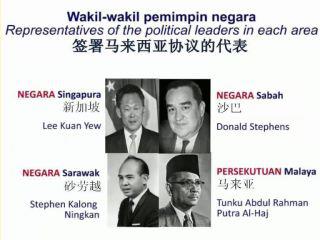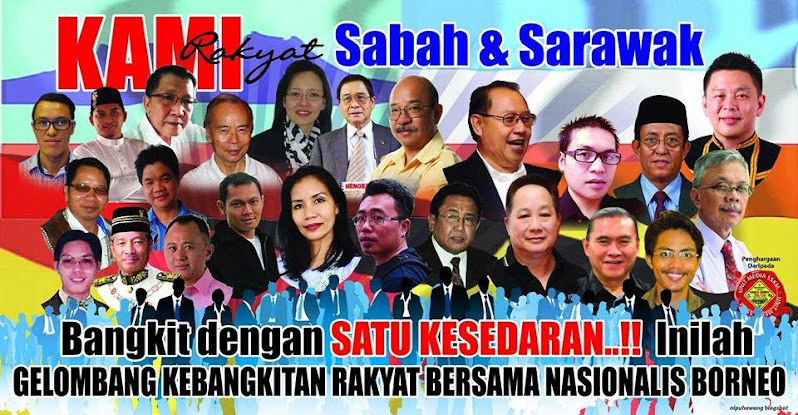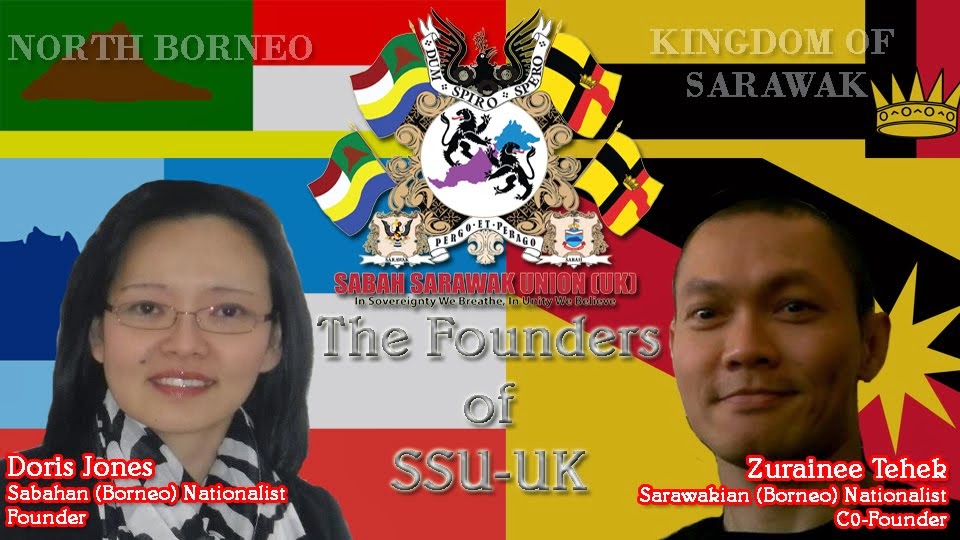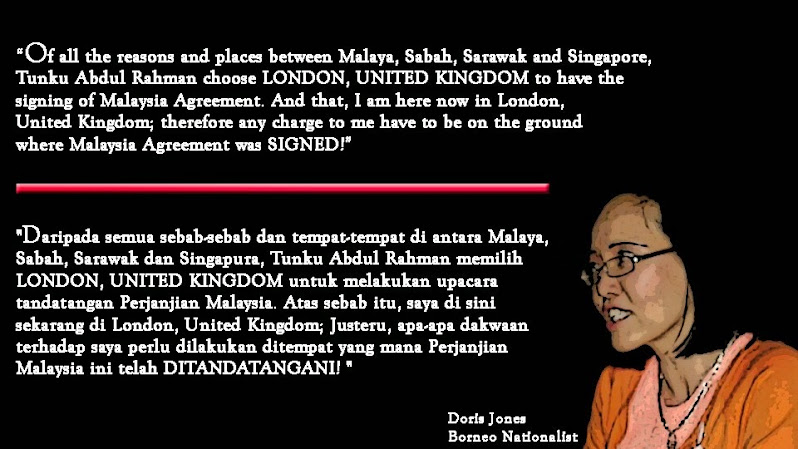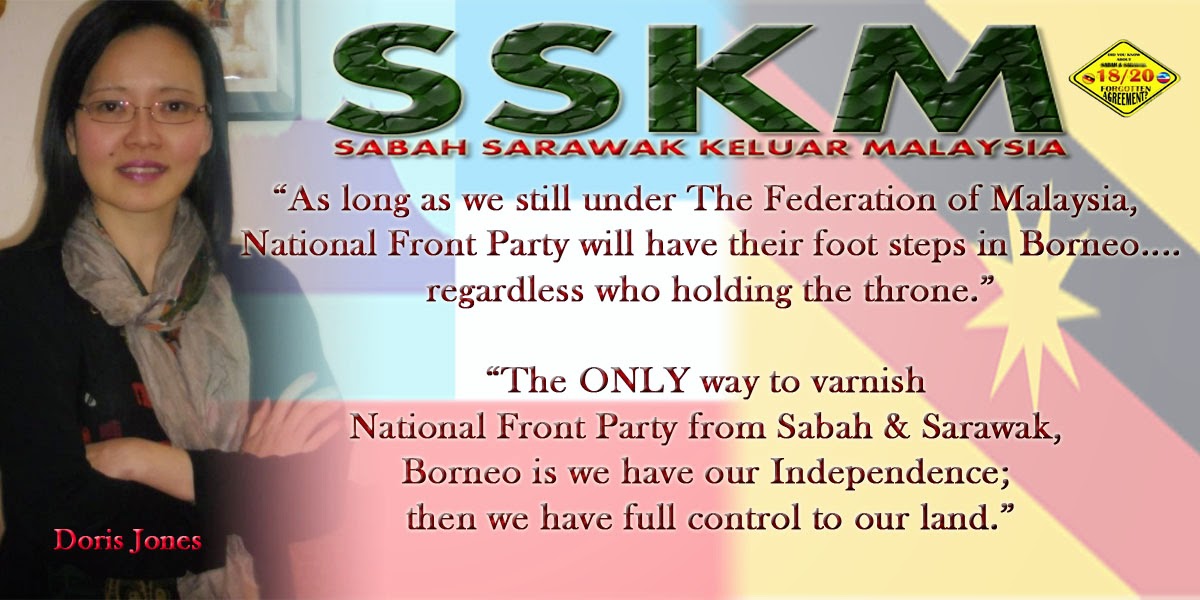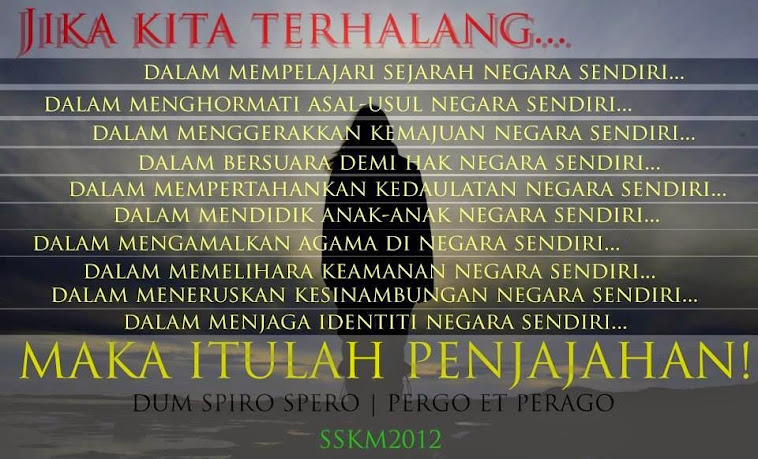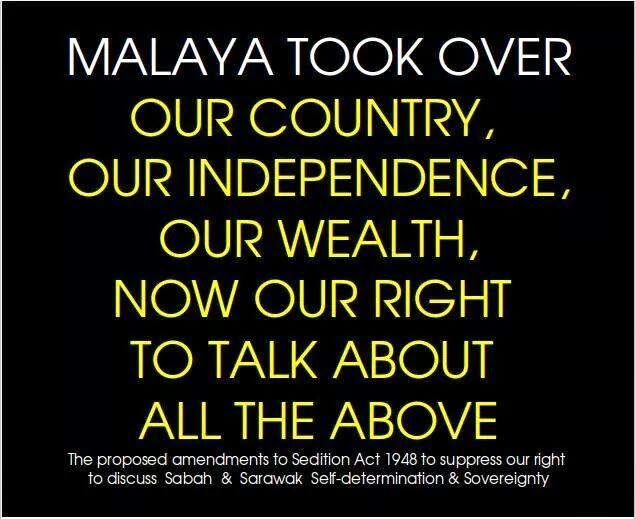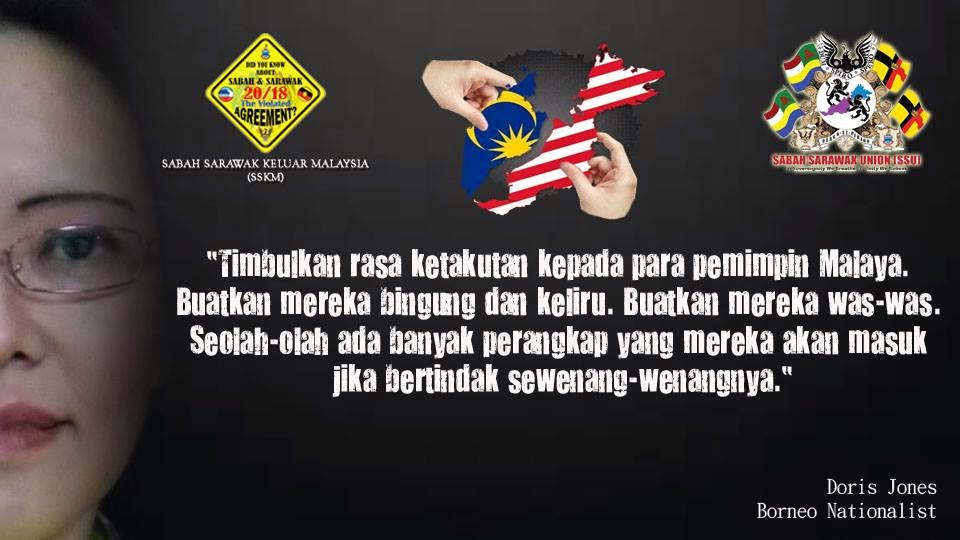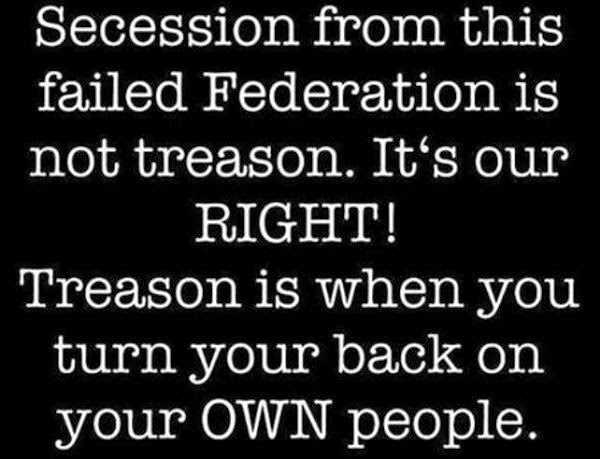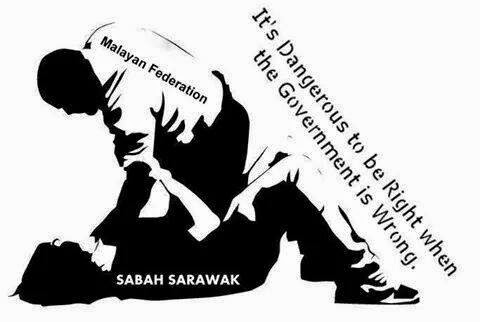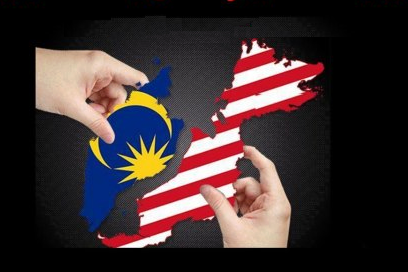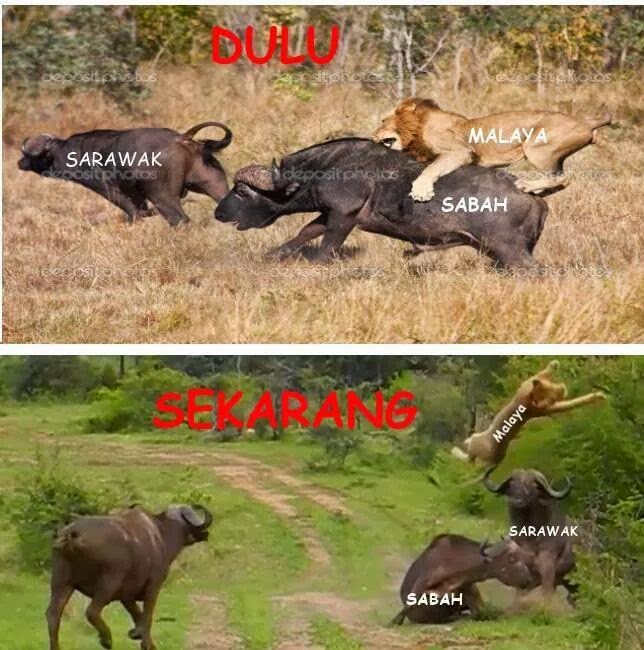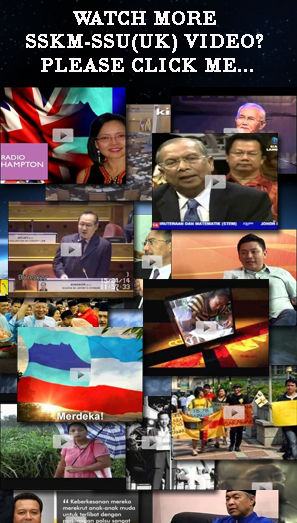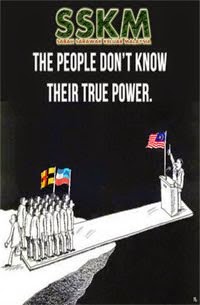On September 18, the Scottish referendum will decide whether Scotland should break off from the UK and become independent. It is not just a question of independence for a separation of Scotland from the rest of the UK would mean the end of the United Kingdom (if you look at the "Act of the Union").
If Scots have any pride, they should vote NO THANKS (and stick with the UK), and I’ll tell you why:
1) Scotland has been very much a part of the UK for over 300 years. It is not a "colony" of the UK; it is seen as a full member of the “family". Breaking up any family is always painful and hurtful.
2) Unlike Malaysia where different races are discriminated against by the government, Scots are given full equal rights in the UK, including in the UK parliament. At least half the number of past British prime ministers were Scots. Scots take high places as chief execs of big British corporations. Scots punch above their weight in the UK. Some even say that it is not the English that ruled Scotland, but the other way around! But the English did not mind – for most of them, Scots are British and therefore they are part of them.
3) There have been thousands, if not millions, of Brits outside Scotland who have some Scottish blood. Intermarriage between Scots and the English, Welsh, Irish and others is seen as "natural", not discouraged. So, in Britain, most Scots have relatives who are not Scots. Currently there are also 800,000 Scots living in the UK outside Scotland, which is substantial considering Scotland's population is only 5.29 million.
Incidentally, those Scots not residing in Scotland are not eligible to vote, but non-Scots living in Scotland are able to do so (including many East Europeans) in this "democratic" referendum!
4) The reason the Scots have been given a referendum is because the UK believes in democracy and it tries to uphold that. However, democracy, if not handled properly, can also have downfalls and can be taken advantage of. The Scottish
National Party, the group leading the "Yes" to breaking up the UK campaign, has been stirring up nationalist sentiments to win people to their side. They also went to the poor and unemployed and sold the idea that they are so downtrodden because of the UK government in Westminster.
5) The SNP even makes the BN/Umno government look like the king of high morals, so you can imagine their standard of moralism!
6) From my close observation in the UK and from visiting friends in Scotland, it appears some supporters of the SNP are behaving like thugs and bullies. They would try to silence anyone who has a view different from theirs. When the "No Thanks" campaigners tried to do their campaigns, they sent "bully boys" and thugs to mess up things for them. “No thanks” posters were defaced. (Does that not remind you guys in Malaysia of the behaviour of a certain political party during the last GE13?) What is more, the SNP then accused their opposite number of being bullies when they themselves were the real bullies.
When the BBC was fair in its coverage, the SNP sent crowds to protest at the BBC because it asked its leader "awkward" questions. Because of that, they claimed the BBC was unfair. It is ironic that the SNP talks of “freedom" for Scots when it is they who are suppressing “freedom" (of expression and speech).
7) Promotion of “patriotism" is good. But promotion of "nationalism" is totally different – nationalism, if handled badly can become ugly and dangerous. Take for example (until a few years ago) Northern Ireland and Nazi Germany (yes, the Nazis started as a "nationalist" movement for the Germans). It appears that the Scottish Nationalist Party is promoting nationalism rather than just patriotism.
8) If the anti-English rhetoric given out by the SNP (“Yes campaigners”) were changed to "Asians", "Indians", "Africans" or "Chinese", they would be termed racists. Would anyone like a country controlled by neo-racists?
9) The leader of the SNP, Alex Salmond, allegedly ruled his party with an "iron fist”, so much so that the opposition "No" campaign leader cheekily gave him the name "Kim Jong-Il", the much hated and feared leader of North Korea! Many Scots fear that if Scotland becomes independent, they will end up having an authoritarian government under him as their leader. To date, Alex Salmond has succeeded in dividing the people of Scotland – brother against brother, friend against friend. In my humble opinion, a good leader should UNITE the country, not divide it!
10) If the SNP and Alex Salmond had proposed an independent Scotland with lots of solid plans and alternatives backed with facts, at least there would be some hope for Scotland to be independent. The SNP was unreliable about the claim of oil in a "rich" Scotland, from the price estimate to the amount in the oil fields. However, major questions to their leaders about important matters were ducked, avoided, brushed aside – or worse,they accused the journalist(s) of being unfair and biased.
Salmond's plans seem only to be hopes and he just asks people to "believe me" as if he were some kind of messiah, which of course he is not. Even to this day, two days from the referendum, we do not know what the Scots would use as currency. The UK government refused point blank that there would be a currency union with an iScotland (i=independent) to use the pound, and if an iScotland insists on using the pound, the Bank of England would refuse to underwrite the banks in Scotland.
The Scottish government is too poor to set up the reserves to create its own central bank. The SNP leader then even threatened that Scotland would renegade its share of UK debt. Who in the financial markets would be confident lending money to a country that defaults its own debt?
11) There are many other economic uncertainties. Prices of almost everything are predicted to go up – the only thing that will probably come down in an iScotland is house prices! Due to uncertainty about the future of an iScotland, people will not spend. This is likely to lead to a slow-down in economy (so how can Scotland be “rich”, then? Lies or what?).
In any case, financial experts claim that if the separation goes ahead on September 18, the pound sterling could fall by as much as 10% in a basket of world currencies. So all of UK would be affected. Also, there would be huge problems for Scotland to rejoin the European Union, a key market. Scottish farmers may also suffer because 90% of the population in the UK is outside Scotland and if Scotland leaves, the Brits who want to "Buy British" foods in supermarkets will not buy from Scottish farms because an iScotland would be a foreign country!
12) Many companies, including Marks and Spencer, Walmart-owned Asda supermarkets and B&Q stores indicated that prices of goods in shops in Scotland, including for food, would go up simply because of logistics in dealing with a smaller country – a much smaller population and larger land area, plus costs of starting up a new company in a new country.
All the banks have said they would move their HQs to the UK. Telecom companies said prices of power would go up. Insurance Aviva also indicated their prices would go up. Whenever the companies raised concerns, all the SNP did was to claim they were “scaremongering". They wanted their followers to be like ostriches and put their heads in the sand. Then, one SNP campaign leader even warned that if Scotland becomes independent, (inferring that SNP would be all powerful), there would be a “day of reckoning" to those companies that expressed concern about independence. Is that the SNP/“Yes Campaigners” idea of "democracy" and free speech?
13) The SNP leader Alex Salmond seems to claim that everything in an independent Scotland will be milk and honey, and there will be no problems! As most sane people would know, the world does not work like that. As it seems to work for the SNP leader, just what planet is he on? (Does he not make your average BN/Umno MP look smart now?) Now, can you see why sensible Scots are VERY VERY SCARED that they will have to separate from the UK and be replaced by that sort of authority?
14) World leaders have also indicated that it would be preferable and better that the United Kingdom remain united and that Scotland should not be separated from the UK – that starts from the president of the United States to leaders in Canada, Australia, China and even the Pope! Only the SNP seems to think that breaking up Scotland is "better".
15) Around 50% of Scots are against separation from the UK – they feel that they can be PROUD SCOTS as well as PROUD BRITISH.
What is more, even if Scotland chooses to stay within the United Kingdom, all the political parties in Westminster, including the ruling UK coalition parties, have agreed to give more power to Scotland, including income tax. They feel they have the best of both worlds if they vote “No thanks” to separating from the UK in the referendum – they will be certain to have MORE POWERS, and STABILITY within the UK. The other option will be more risk, uncertainty and unknown by going all alone, against the advice of world leaders.
So, because of the above, I do hope that on September 18, Scots will see sense and vote for “No thanks” in the Scottish referendum and to remain as a "family member" within the United Kingdom. To remain with the UK, dear Scotland, the world is behind you! – September 16, 2014.

 Saya ingin menambah bahawa sebagai perlindungan tambahan terhadap apa-apa tindakan cadangan telah dibuat bahawa hak untuk menarik diri dari Persekutuan hendaklah ditulis ke dalam Perlembagaan. Cadangan ini tidak diterima oleh Tuan Lansdowne, Pengerusi Suruhanjaya, atas sebab bahawa mana-mana Negara yang menyertai persekutuan secara sukarela mempunyai hak intrinsik untuk menarik diri mengikut kemahuan mereka bila-bila masa, dan oleh itu tidak perlu untuk memasukkannya ke dalam Perlembagaan.
Saya ingin menambah bahawa sebagai perlindungan tambahan terhadap apa-apa tindakan cadangan telah dibuat bahawa hak untuk menarik diri dari Persekutuan hendaklah ditulis ke dalam Perlembagaan. Cadangan ini tidak diterima oleh Tuan Lansdowne, Pengerusi Suruhanjaya, atas sebab bahawa mana-mana Negara yang menyertai persekutuan secara sukarela mempunyai hak intrinsik untuk menarik diri mengikut kemahuan mereka bila-bila masa, dan oleh itu tidak perlu untuk memasukkannya ke dalam Perlembagaan.